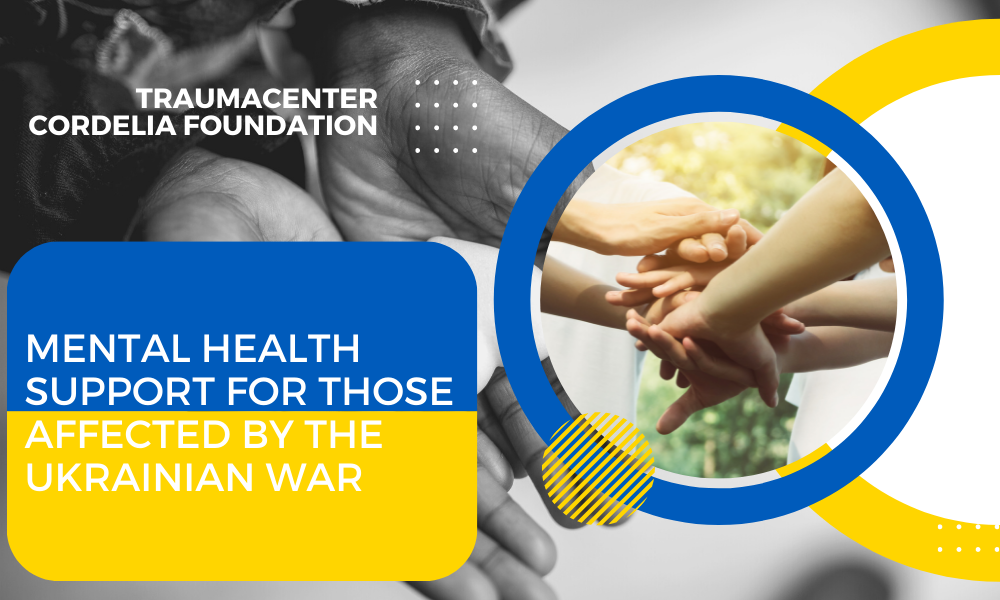Therapies
Primarily we are looking for clients who are in need of psychological help to process traumas and their aftermath. In our facility, we help to process traumas that affect a wide and heterogeneous social community, such as
- sexual abuse,
- psychological/physical abuse of children or adults, neglect,
- being the victim of human trafficking/crime,
- involvement as a victim in human trafficking, traffic accidents or natural disasters,
- social exclusion, stigma,
- traumatic situations caused by pandemics.
Our organization operates on a nonprofit basis and it is our priority to ensure that psychological support is not a privilege, so we try to help disadvantaged people with limited financial opportunities by providing need-based care that is much affordable than the market price.
Requests for the need-based care must be explicitly made when you submit your request for the first appointment. Details will be clarified further during the first appointments with our therapist.
The capacity of the Trauma Centre is limited, therefore we are not able to provide immediate assistance after registration. Every enquiry we receive will be answered and, if necessary, requests for therapy will be recorded in a waiting list system. Practically speaking, this means that as soon as a therapy process is completed and our capacity is freed up, we notify the client who has been on the waiting list for the longest time.
Therapy appointment at market rates
Appointment for need based care
You can find the list about the most frequently asked questions by clicking here.
If you feel you need help, contact us by clicking here.
General information
- What is the difference between a psychologist and a psychiatrist?
A psychiatrist has a medical diploma, a psychologist has a psychologist diploma. With the appropriate specialized training psychologists and psychiatrists can both perform therapeutic work, however, only a psychiatrist can prescribe medicationA psychiatrist has a medical diploma, a psychologist has a psychologist diploma. With the appropriate specialized training psychologists and psychiatrists can both perform therapeutic work, however, only a psychiatrist can prescribe medication.
- What is psychotherapy?
Psychotherapy is a curative intervention with the help of direct communication within a helping relationship. It is a labour-intensive procedure, in which the main influencing factor, apart from the method, is the personality of the therapist. You can read more about this question through this link.
- What happens during the first interview?
After registering for the appointment a so called “first interview” will take place. The process of the first interview consists of usually one session, however, it could take several sessions in some cases. Through this conversation the client summarizes the problem, difficulty or self-knowledge question that brought them into therapy, to which the therapist makes recommendations regarding the therapeutic options. After the first interview everyone has the option to decide if they want to continue the therapeutic process together. The therapist, among other things, considers whether the client’s problem is within his/her competences, and the client makes a decision about whether the therapist’s personality, methods and recommended plan are suitable for him/her. Based on all this, the therapist and the client make a verbal agreement on the purpose, method, frequency an length of the therapy.
- What is a therapeutic contract good for?
A therapeutic contract is created between the client and the therapist, the purpose of which is to create the framework of the therapeutic process and put it in writing. During the first interview the purpose and the method of the therapy, the duration and location of the sessions and practical issues (cancellation, payment, ect.) are discussed. The contract also provides information on confidentiality, this obliges the therapist, since everything said during the sessions is strictly confidential. After the parties have agreed on all of this, the contract is signed.
- What does a therapy office look like?
The furnishing is friendly and homely, which makes it look more like an office or a living room than a doctor’s office. All of the appointments take place in a separate room, where only the people participating in the therapy can stay. We pay a lot of attention to ensuring that the patient’s privacy rights are enforced throughout the clients stay. You can learn more about the Trauma Centre’s office by clicking here.
- How long is a therapeutic session?
Usually it is 50 minutes.
Narrower fields of expertise
- What kind of problems can I contact the Trauma Centre with?
The team at Trauma Centre specializes in processing trauma and its aftermath. More information is available here.
- How do I know if one of my family members, acquaintances or friends have PTSD? What are the symptoms?
You can read more about PTSD in the blog post below, where you will also find more information about the symptoms.
- What is burnout?
Burnout is the medical term for a state of emotional, physical and mental exhaustion caused by excessive and prolonged stress often linked to one’s workplace. During this condition the person experiences persistent helplessness, a feeling of incompetence, a reduced desire to work, a decrease in motivation and performance and a monotonous/”worthless” feeling associated to his/her work. You can read more about burnout by clicking here.
- Today’s world is so stressful, how do I know it’s too much and I should ask for help?
When stress shows more serious physical symptoms, such as headaches, stomach-aches, dizziness, increased sweating or sleep disturbance, then it is worth finding out what the source of the stress could be and how it could be treated.
- What is mental health/mental hygiene?
Mental hygiene, which actually means the science of preserving mental health, primarily aims to maintain the balance of our mental balance through prevention, since if we can prevent the trouble in time, we could not get to the point where our mental health is upset, or is in an imbalance. However, if the imbalance were to happen, we can eliminate mental problems that make our days bitter and live in harmony with ourselves and the world again with the help of a temporary remedy by turning to a specialist for guidance.
- What methods are used at the Trauma Centre?
The Trauma Centre’s team consists of specialists working with different approaches, so we can help with several types of therapeutic methods. EMDR, Integrative Trauma Therapy, Trauma-Focused Cognitive Behavioural Therapy, Focused Psychodynamic Therapy, Grief Processing, Hypnotherapy, Gestalt Therapy and, if necessary, drug therapy.
Practical questions
- How much does the therapy cost?
For those who cannot be given a discount on the basis of need, we work with 20.000 HUF/therapy session, from which we also support the therapy costs of our disadvantaged clients, so those who come to the Trauma Centre can help those who currently do not have access to therapy through their own finances. We try to help disadvantaged people with limited financial resources by providing need-based care at a lower price than the market price. The need for this must be indicated at check-in, and then the details will be clarified during the first meetings with our therapist.
- How can I register for therapy?
Please contact us via the menu “sign up for therapy”. It is important that you describe your complaints in as much detail as possible, as well as what you need help in. Make sure to enter your contact information accurately, as a Trauma Centre employee will contact you through this.
- What happens after I check in at the Trauma Centre?
The Trauma Centre will contact you at the contact information provided by you as soon as possible. If necessary, we will ask you additional questions and then give you the contact information of our therapist to make an appointment for the so-called first interview (more information about this can be found under question 3: what happens during the first interview?)
- I have an appointment for the first interview, do I need to prepare anything?
To prepare for your first interview and to know what to expect, we recommend that you review the useful information on our website. We especially emphasize that the Trauma Centre has specific professional knowledge and capacity, which may also mean that during condition assessment it is determined that we are not able to provide the best help. In addition, it is important to note that the Trauma Centre offers services based on needs at a lower price than the market price, so our therapists will also want to discuss with you how much you can afford to contribute to the therapy costs.
- How frequently do I have to go to therapy and for how long?
The therapy starts with the conclusion of an agreement, during which the client and the therapist fix the therapy methods, the time and the frequency of the sessions, involving the length of the therapy.
- Who offers therapy?
- As a family member, do I also have to participate in the therapy?
In justified cases, after the first conversations, the specialist can decide that the greatest help for the client is if his/her immediate family also participates in their therapy (i.e. family therapy is needed). You can read more about how you can support therapy as a family member by clicking here.
- Can I choose a therapist for myself?
In each case, the Trauma Centre recommends the most experienced and available therapist in relation to the client’s problems. However, if there is someone from the Centre’s therapists with whom you would like to work together, please indicate this when contacting us. If the therapist has free capacity, the complexity of symptoms and the therapist’s expertise are in line with your request then we will try to fulfil this request.
- Who can I turn to if I am not satisfied with the service or with my therapist?
An important principle during the therapeutic work is that the client brings up problems even if it involves the therapist, and tries to discuss them. With further complaints the client can contact the Trauma Centre by sending a written request to the e-mail address info@traumakozpont.hu. The executive investigates the complaints in accordance with the organization’s code of professional ethics.
- I am going to the Trauma Centre for therapy, can I cancel my appointment?
The client must notify the therapist directly at least 48 hours before the appointment. In case of cancellation within 48 hours the client must pay the fee of the missed session. Exceptions are cases of force majeure, when the meeting is missed due to some unforeseen compelling circumstances.
Az vagyok, aki vagyok. Úgyse lehetek más: miért féljek hát fölfödözni, ki vagyok?
Szophoklész: Oedipusz király

